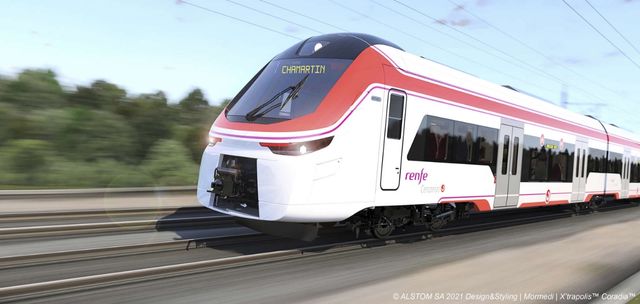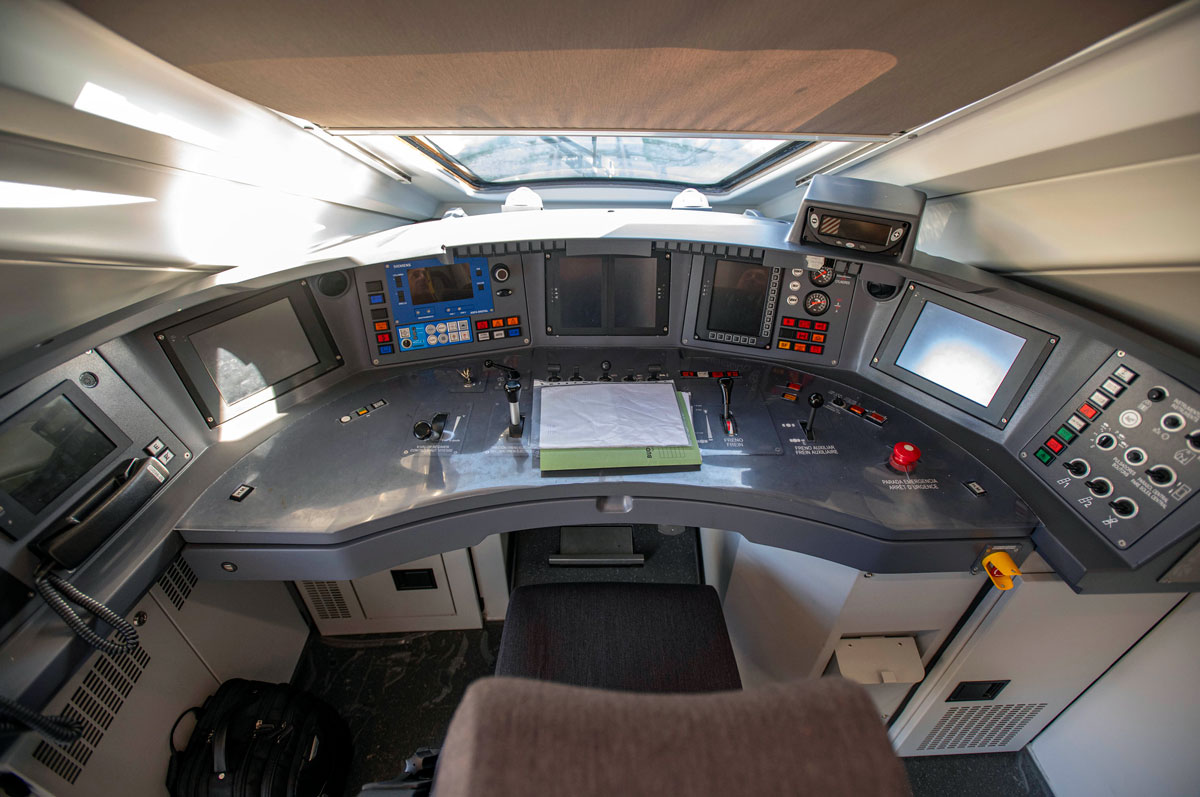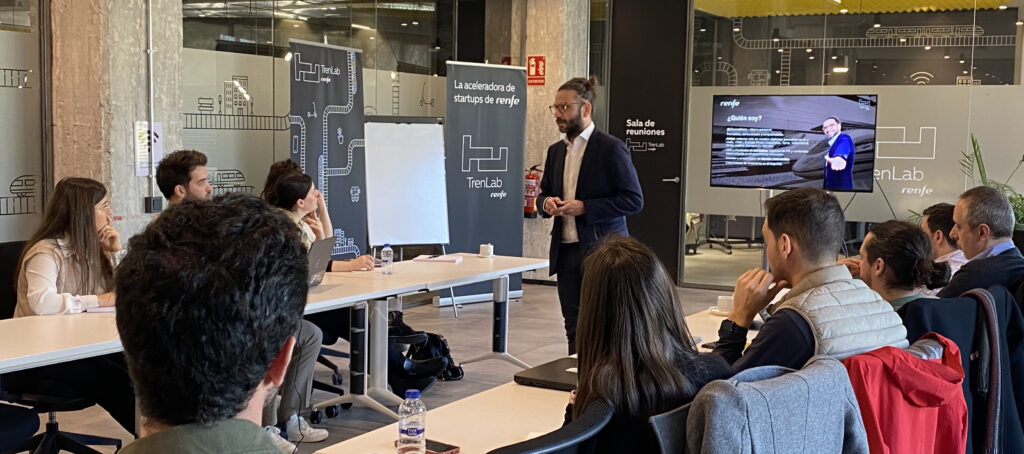Renfe awards the Fleet Optimization challenge to startup UPintelligence

- Renfe’s startup accelerator has opened a call to respond to the Fleet Optimization challenge.
- The winning startup, UPintelligence, has the opportunity to win a contract of up to one million euros for the deployment of its project.
How can the management of the more than 5,000 Renfe trains that run every day on the Spanish rail network be optimized? Renfe has a modern and versatile fleet in which trains designed to run on international gauge, conventional gauge or both (known as variable gauge) and metric gauge tracks coexist. This is in addition to the combination of electric and diesel traction trains and the aim of achieving greener rail transport. Therefore, Renfe, committed to the optimization of its fleet management, launches a new challenge for the fifth edition of its acceleration program, in order to carry out a good planning and provide the best service to its customers.
The startup chosen to solve this complex challenge is UPintelligence, winner of the Fleet Optimization challenge of the V TrenLab Call for Proposals. Endowed with 50,000 euros for the development of its pilot, this project reinforces Renfe’s leadership with efficiency and sustainability, in line with the strategic plan in the integration of new systems that contribute to the improvement of rolling stock management in order to offer the best service to its customers.
UPintelligence, a company based in Asturias, specializes in artificial intelligence and data analytics. Through R&D solutions, it helps companies achieve their goals in digital transformation to adapt to the new challenges of society through 5.0 technologies, solutions based on R&D+i, artificial intelligence (AI) for predictive platforms, digital twins, expert management systems, business intelligence or augmented reality applications. The winning startup proposes a customized project for Renfe Viajeros based on the creation of a fleet prediction and optimization model, accompanied by a visualization system for temporal data and future data. The objective of this pilot is to provide a decision support tool that offers an optimization in scenario predictions, based on the development and use of advanced artificial intelligence algorithms such as Machine Learning or Deep Learning.
The rail fleet of the future
Renfe is immersed in the process of modernizing its fleet in order to offer the highest quality service to its customers. The railway company has allocated more than 5,235 million euros, one of its largest investment efforts in decades, to improve the efficiency of all its services through the purchase or renewal of trains and locomotives (both Renfe Viajeros and Renfe Mercancías). This new rolling stock will be incorporated to the Spanish roads during the next few years, achieving a fleet with a lower average age, more sustainable and efficient, capable of meeting the commitments of comfort and punctuality with its customers.
A clear example of this is the new fleet that will be destined to the service in the large suburban train hubs. Promoting the optimization of the fleet in this service is especially relevant, since every day more than one and a half million passengers use the nearly 4,000 trains that Renfe puts into service to move around the main urban centers. This makes the commuter train one of the most environmentally friendly means of transport.
By way of example, in the Madrid commuter train core, the average annual savings contributed by the train in terms of external costs (urban congestion, reduction of accidents, elimination of noise and emissions, etc.) is 424.8 million euros.
Therefore, Renfe, in its commitment to the environment, launches this Fleet Optimization challenge to achieve a more sustainable rolling stock, through the use of light and recyclable materials, as well as clean and more efficient propulsion systems. The modernization of Renfe’s fleet will represent a major step towards compliance with the European Green Pact, which has set a target of 90% reduction of emissions associated with the railway sector by 2050.


